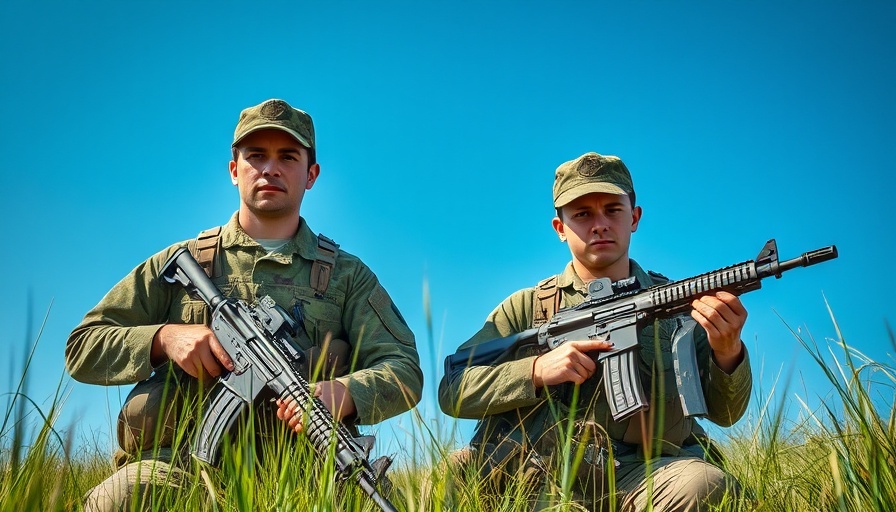
A New Coalition for Peace: What to Expect from the UK Initiative
As the conflict in Ukraine drags on, the UK is preparing to lead a coalition involving more than 30 countries in a push for a Ukrainian ceasefire. This initiative comes at a pivotal moment, with military leaders from various nations convening to discuss the practicalities of a peacekeeping mission. Amidst this backdrop, UK Prime Minister Keir Starmer has called for unity as Europe seeks to reaffirm its commitment to Ukraine, particularly in light of uncertainty surrounding U.S. support under President Trump.
Understanding the Ceasefire Coalition's Objectives
The proposed coalition aims not only to enforce a ceasefire but also to pave the way for a sustainable peace in the region. Leading figures from the UK and beyond are deliberating the roles and contributions of various countries, with an emphasis on a collaborative approach. Insights reveal the necessity of a 'maximalist approach,' wherein comprehensive resources and strategies are required for effective peacekeeping. This includes leveraging the military capabilities of involved nations and ensuring that their presence is meaningful and well-coordinated.
Why This Coalition Matters to Global Peace
Historically, peacekeeping missions have played a crucial role in conflict resolution. They enable nations to work collectively towards a common goal and establish conditions for lasting peace. Therefore, this coalition not only signifies a European commitment to regional stability but may also have far-reaching implications in global geopolitics.
The Stakes: A Time for Action
The pressure to achieve a ceasefire intensifies with each passing day. Military analysts suggest that a peacekeeping force would need to be substantial, potentially numbering in the tens of thousands. Low troop commitments could exacerbate existing tensions, and European leaders are keenly aware that the success of such missions could influence future engagements in regions beyond Europe.
Diverse Perspectives on Peacekeeping
Counterarguments arise regarding the effectiveness of peacekeeping forces. While proponents argue for their necessity, skeptics cite failures in previous operations. As European defense budgets increase, so does the question of whether European countries can commit to substantial deployments without succumbing to fears of casualties.
The Role of NATO and European Unity
NATO's Article 5—a mutual defense clause—remains a prominent consideration. Policymakers recognize that any casualties among European troops could invoke significant repercussions. Therefore, a strategic approach to positioning peacekeeping forces is essential as military leaders navigate this delicate landscape.
Looking Ahead: Building a Cohesive Plan for Peace
The upcoming negotiations by military chiefs are crucial, with discussions extending to logistics, troop readiness, and operational mandates. If the coalition can successfully articulate a clear and actionable strategy, there’s real potential for impactful change in Ukraine and beyond.
Conclusion: The Imperative for Solidarity
As the UK mobilizes this ambitious coalition, the collective will of these nations to endorse a tangible peace plan is paramount. The ongoing dialogue among military leaders puts Europe in a pivotal position, highlighting not only shared responsibilities but also the urgent need for multinational cooperation. By coming together, these countries could redefine the trajectory of Ukraine and demonstrate the power of global solidarity in the face of adversity.
 Add Row
Add Row  Add
Add 



Write A Comment